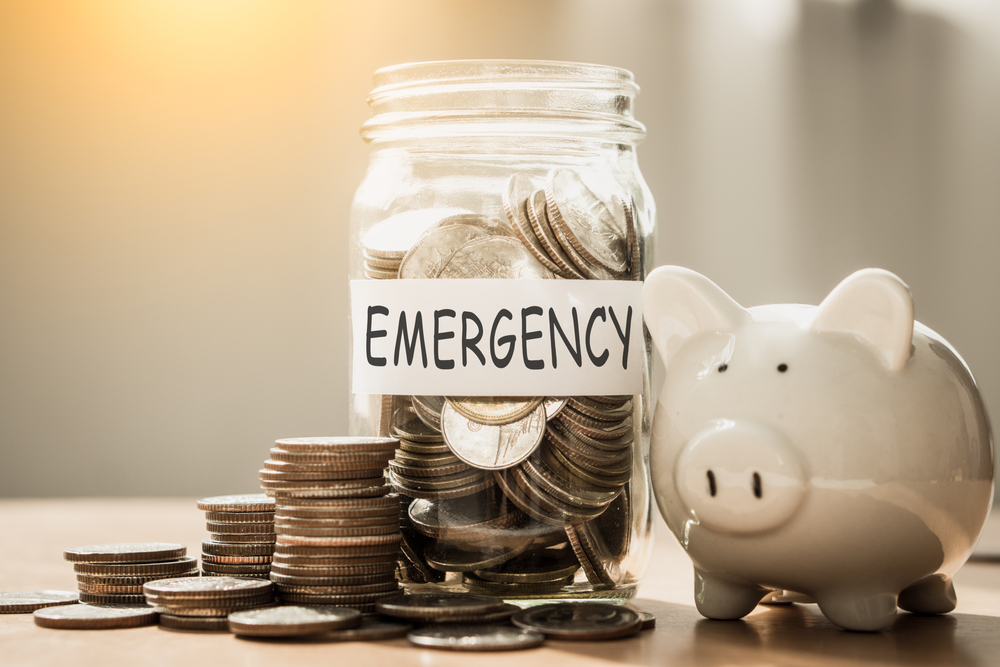How to Avoid the Top 5 Budgeting Mistakes in 2025
Budgeting might sound old-school, a relic from our grandparents’ generation, but in today’s unpredictable world, it’s more essential than ever. We work hard, we are responsible, and many of us, myself included, have been budgeting in some form or another for years. We follow the conventional wisdom, trying to be diligent savers. But despite our best efforts and long hours, we look at our bank accounts and still don’t have enough to show for it. That gap between effort and result can be incredibly disheartening.
I’m tired of this cycle, of diligently trying to secure my future only to feel like I’m constantly failing. The economic landscape is probably worse than I can ever recall, and unfortunately, a pervasive sense of uncertainty has become the new norm. I am one of the millions of Americans over 40 trying to thrive, or even just survive, in a world that feels increasingly chaotic. The idea of the USA as a safe, predictable space for financial growth feels like a distant memory. Facing the unknown, from job security to the cost of groceries, has become one of my daily challenges. I don’t know what to expect anymore, and the constant barrage of financial news leaves me speechless and anxious.
In all these years, I tried my best to save for my retirement and to build a foundation that would let me make the best out of my golden years. But as I take a hard, honest look at what I’ve actually accomplished, I am extremely disappointed with my results. My previous plans were either too rigid or too vague. I didn’t manage to stick to the plan, not for a lack of trying, but because life always seemed to get in the way, and I feel like my world is falling apart. How am I supposed to live a happy life as a retiree and not worry about every little thing going on? The relentless inflation, the confusing tariffs, and the volatile political landscape feel utterly overwhelming, turning simple financial planning into a monumental task.
So, here’s the truth I’ve had to face: we can’t afford to keep ignoring the common budgeting mistakes we are constantly making, often without even realizing it. I dedicated myself to researching this, and you won’t believe how easily these fundamental errors can sneak into our daily routines. They can perfectly hide in plain sight, disguised as ”normal” spending, and I’ve learned that even the smartest, most responsible adults make them. These aren’t signs of failure; they are simply blind spots we need to illuminate.
I no longer want to live in fear or be a passive observer of my own financial destiny; the time to take decisive control of my finances has come. It’s about more than just numbers; it’s about reclaiming my peace of mind. Would you like to join me on this journey toward financial clarity and empowerment? Continue reading, and let’s identify these pitfalls together.

Top 5 Most Common Budgeting Mistakes
1. Not budgeting at all
Unfortunately, many Americans, especially those who aren’t in dire straits, skip budgeting entirely. As long as you are not living from paycheck to paycheck, and the bills are getting paid, skipping it might seem harmless. It can feel like an unnecessary restriction, something only for people who are in serious debt. But, trust me, over time, all that lack of structure can cost you more than you think. This financial drift is a silent drain on your future. Even though you have a stable income and you manage to pay your bills and lead a peaceful life, you still need to pay close attention to your financial decisions to truly get ahead.
A budget isn’t a financial straitjacket. Budgeting doesn’t have to be restrictive or about deprivation. In fact, its true power lies in awareness; it’s a tool that simply tells you where your money goes each month. This clarity allows you to see where you might be overspending without realizing it—the classic “death by a thousand cuts” from daily coffees, impulse online shopping, and forgotten subscriptions. It’s about making conscious choices rather than letting your money disappear into a black hole.
Probably, the best part about budgeting, and the part that truly changed my outlook, is that it puts you firmly in control. I feel more organized and empowered since I started to budget properly, and I can say that my life has entirely changed. I’m no longer anxious when a bill arrives. I know exactly how much I can spend on groceries, how much I can allocate to entertainment, and most importantly, how much I can save each month. The idea of being in charge, of being the one directing my money instead of my money directing me, gives me a profound sense of comfort and security that I hadn’t realized was missing.

2. Setting an unrealistic budget
We all know it’s extremely tempting to use aspirational numbers when we establish our budgets. We imagine our ideal financial selves—the ones who never order takeout and save 50% of their income. That’s basically the first mistake we make when we finally decide to budget. We shouldn’t treat budgets as something that looks great on paper, but instead focus on creating one that can hold up in the messy reality of real life. An unrealistic budget represents wishful thinking, not practical planning, and it sets you up for failure from day one. So, next time you create your budget, please consider your current income, your actual past spending habits, and your non-negotiable expenses. Be brutally honest with yourself.
You can’t simply assume that you’ll cut your dining-out expenses in half, spend nothing on entertainment, and drastically limit your grocery bills all at once without a concrete plan for how to achieve that. Life happens. A friend’s milestone birthday will come up, your car will need a new tire, your kid will need supplies for a school project. I learned the hard way that if my budget doesn’t reflect the way I actually live and the spontaneous costs that arise, it’s destined to fail, leaving me feeling even more defeated than when I started.
Instead of focusing on an idealistic plan, I urge you to look at what you’ve actually spent over the last two or three months, not what you think you should be spending. Pull up your bank and credit card statements. The numbers don’t lie. Trust me when I say that having a realistic foundation entirely changed how I spend my money. It was a wake-up call. I didn’t even realize how much money I used to waste on things I didn’t even need or particularly enjoy, like lunches I bought simply because I was unprepared.
Furthermore, don’t forget to offer yourself some grace and flexibility. A budget that’s too tight is one you’ll want to rebel against. I created a “fun money” or “guilt-free” category with money I can spend on whatever I want without feeling guilty or like I’m breaking the bank. Whether it’s a new book, a fancy coffee, or a movie ticket, it offers me comfort knowing that I can still enjoy the little things in life while I still save and take care of my financial future. This single category acts as a pressure-release valve that makes the whole system sustainable.
Ultimately, I learned to be consistent, not perfect. If I have a week where I overspend, I don’t throw the whole budget out the window. I just acknowledge it, adjust, and get back on track the following week. So, once I changed my mentality from perfectionism to consistency, budgeting no longer felt like a punishment. It became an important, and dare I say, empowering part of my life.
3. Not tracking your expenses
For the longest time, I used to avoid tracking my expenses. It felt like an overwhelming, tedious full-time job that I simply didn’t have the time or energy for. The thought of logging every single coffee and pack of gum was exhausting. However, I learned the hard way that you can’t fix a leak if you don’t know where it’s coming from. I wasn’t able to fix anything about my financial situation before seeing exactly where the problems were.
Like many people, I was severely underestimating my spending in certain categories. I would have guessed I spent maybe $150 a month on groceries, but tracking revealed it was closer to $300. All those everyday items, those “just a few dollars here and there” purchases, can add up incredibly quickly. Not tracking how much I spent on these small things left me wondering where all my money had disappeared to by the end of the month. Oh, and don’t get me wrong! You don’t need to record every penny manually with a pen and paper unless you want to. We are lucky to live in an age where countless budgeting apps can connect to your bank accounts and help you stay on top of it with minimal effort.
When I first started to take care of my spending habits and created a budget, I wrote everything in my journal. I have to admit that it was a little bit exhausting to keep writing things down, so I quickly transferred to an app. It’s easier than you can imagine to track your spending, savings, and income this way. Most apps categorize your spending automatically, so you can see at a glance if you’re over budget on “dining out” or “shopping.” I truly regret not trying this earlier; it would have saved me years of financial stress.
By reviewing my spending habits weekly, I found some shocking patterns. The most immediate win was discovering I was wasting a lot of money on subscriptions I didn’t even use anymore, including a streaming service I forgot I had and a premium app membership that was no longer necessary. I cancelled all those wasteful subscriptions in one afternoon, and I immediately felt relieved and a little richer. Currently, I set aside 15 minutes every Sunday to review my transactions for the week. This small habit keeps me accountable and prevents small leaks from turning into major floods.

4. Not saving for emergencies
Unfortunately, after going through an unexpected surgery a few years ago, I learned in the most brutal way that emergency funds are not just important; they are absolutely critical. I used to believe that I had enough time to save before retirement and that major health problems were a distant concern. I was in a state of denial, thinking “that won’t happen to me yet.” Well, I was completely wrong. I had to go through a physically and emotionally traumatic experience, made ten times worse by financial panic, to understand that financial planning is essential for navigating life’s inevitable storms.
Without an emergency fund, I was forced to rely on high-interest credit cards and personal loans to cover the medical bills. The debt piled up quickly, creating a second layer of stress on top of my recovery. I was also lucky enough to have some good friends who lent me money, and for that I’m forever grateful. It was amazing to have someone to talk to about my problems, but the borrowing also added a layer of guilt and stress to an already stressful situation. It strained relationships and my own sense of independence.
Life doesn’t wait for ”the right time” and it consistently surprises you in the most unexpected moments. It’s always something you need to take care of: a broken appliance like a refrigerator, a sudden job loss, a necessary but expensive car repair, or even some unexpected price raises on grocery shopping that throw your whole monthly plan into disarray. Far too many people, myself included, don’t plan for these kinds of moments until it’s too late and they are already in crisis mode.
Building an emergency fund is not that hard, especially if you start small, and it’s an extremely smart move in a world of chaos. Even having $1,000 set aside in a separate savings account can prevent a minor inconvenience from turning into a major crisis in your life. Start by automating a small amount—$20, $50, whatever you can manage—from every paycheck into that fund. The key is to make it automatic and keep the money separate so you aren’t tempted to touch it. However, make sure that whenever your income grows, you review and increase the amount of money you save. The common rule of thumb is that you should aim for three to six months’ worth of essential living expenses (rent/mortgage, utilities, food, insurance). This way, you’ll benefit from a crucial breathing room in case of an unexpected and prolonged situation, giving you time to recover without making rash decisions.
5. Not investing in your future
It’s so easy to get caught up in the day-to-day financial grind that we stop focusing only on today’s bills and immediate needs. I was guilty of this for years; I also used to miss the bigger picture entirely. My financial focus was a microscope on the present, not a telescope on the future. Throughout my journey, I learned that a successful financial plan not only has to help you survive and manage the present, but it must also actively prepare you for the future you want to have. You don’t need to save just for emergencies; you also need to save and invest for your long-term goals, like retirement, homeownership, or simply having options later in life.
For example, I recently got serious about saving for retirement. I used to believe that I had enough time, but the reality is that the best time to start was 20 years ago, and the second-best time is right now. I don’t have any more time to waste. I have to prioritize my life as a retiree, because in today’s world, with rising healthcare costs and dwindling social safety nets, dealing with health issues and basic living expenses without a solid nest egg can be extremely difficult and frightening.
Since I started prioritizing my future self by contributing regularly to my retirement accounts, I’ve seen a lot of improvements in the way I feel today. I feel more motivated, more hopeful, and brave. Paying myself first, even if it’s a small amount, is an act of profound self-respect. I feel that I can accomplish anything I put my mind to. I wish for you to experience this feeling of freedom and control, because there’s nothing to compare it with. It’s the peace that comes from knowing you are building a stronger foundation for yourself.
Beyond traditional retirement accounts, I also recommend you start investing in courses, certifications, or even side businesses. Think about what skills could increase your earning potential. Focus on anything that can help you grow and transform you into the best, most capable version of yourself. This is also a form of investment with potentially huge returns. The more you invest in your skills and your future savings today, the more freedom and choices you’ll create for yourself tomorrow. And at the end of the day, that’s what real financial wellness is all about: having options, security, and peace of mind.
Overcoming these five mistakes isn’t about becoming a financial genius overnight. It’s about taking small, consistent, and compassionate steps in the right direction. I know it can feel daunting, but the peace of mind that comes from taking control is worth every bit of the effort.
Before leaving, here is the budget planner that helped me stay organized and basically changed my life. It can be found on Amazon, and it has amazing reviews.
Are you interested in learning more about the most effective budgeting methods? Here’s what to read next: Is the 80/20 Budget the Key to Financial Freedom?














